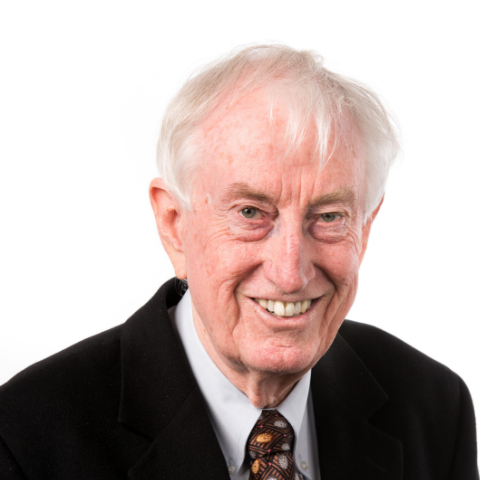Sold out: Doherty Lecture: The Peter Doherty Nobel Lecture Series
30 September 2024 5:30pm–7:00pm
This event has sold out - but you can enter here for a chance to win a double pass!
utm_campaign=Doherty%20Lecture&utm_source=uq_alumni&utm_medium=edm&utm_content=win_two_tickets_to_see_a_nobel_laureate_competition_uq_alumni
Nobel Award-winning scientist and UQ alum, Laureate Professor Peter Doherty AO FRS FMedSci, will return to UQ to deliver the inaugural lecture of The Peter Doherty Nobel Lecture Series.
We invite you to join Laureate Professor Peter Doherty for an inspiring lecture reflecting on how his Nobel Prize changed our understanding of the immune system and the trajectory of his career, leading to tireless efforts to improve health in developing nations through vaccination, and to promote scientific literacy and engagement through books and trusted commentary, particularly during the COVID-19 pandemic.
Date: Monday 30 September
Time: 5:30-7pm AEST
Location: The Long Room, Customs House, 399 Queen Street, Brisbane
 Peter Doherty
Peter Doherty
Trained initially as a veterinarian, Laureate Professor Peter Doherty is an Australian immunologist and pathologist who, with Rolf Zinkernagel of Switzerland received the Nobel Prize for Physiology or Medicine in 1996 for their discovery of how the body’s immune system distinguishes virus-infected cells from normal cells. After leading a research laboratory at the Wistar Institute, Philadelphia, and teaching at the University of Pennsylvania (1975–82), Peter headed the department of experimental pathology at the John Curtin School of Medical Research in Canberra (1982–88) and served as chairman (1988–2001) of the department of immunology at St. Jude Children’s Research Hospital in Memphis, Tennessee, where he still holds the Michael F Tamer Chair of Biomedical Research.
In 2002, he joined the faculty of medicine at the University of Melbourne, and from 2014, has been at the Peter Doherty Institute (PDI) for Infection and Immunity, a joint venture between the university and the Royal Melbourne Hospital. The Nobel award led to an increasing involvement in public science communication, both in his own area of viral pathogenesis and immunity and in topics related to environmental sustainability and climate change. He is active on social media and was a prominent commentator through the first two years of COVID-19. After working on infection and immunity at one level or other for 60 years, he moved to emeritus status at the University of Melbourne in July 2023, though he continues to be the Patron of the PDI.
Peter is the author of many books, including The Beginner's Guide to Winning the Nobel Prize: A Life in Science (2005), Sentinel Chickens: What Birds Tell Us About Our Health and the World (2012), Pandemics: what everyone needs to know (2013), The Knowledge Wars (2015), The Incidental Tourist (2018), An Insider's Plague Year (2021) and most recently Empire, War, Tennis and Me (2022).
When Peter gave his first presentation back at the University of Melbourne after winning his Nobel Prize in 1996, he humbly commented that he was just fortunate to get it right 40 years ago, when as a young research at the Australian National University (ANU) he made his prize-winning discovery with lab-mate Rolf Zinkernagel.
That discovery that changed our understanding of the immune system, earning them a Nobel Prize, and continues to be used by medical researchers and doctors around the world in designing vaccines, understanding the autoimmune and other viral diseases and even cancer.
Peter continued to pursue research throughout his international career and has also amde prodound contributions to policy and public engagement arenas. Passionate about evidence-based approaches, he has spoken out against misinformation and promoted public awareness of the importance of vaccination which was critical in addressing vaccine hesitancy for COVID-19. A member of the Global Alliance for Vaccines and Immunization (GAVI) since its inception in 2000, he has been part of a public-private partnership that has helped immunise more than 981 million children and prevented more than 16.2 million deaths in low-income countries.
He has provided scientific advice and collaborated on studies related to infectious diseases and immunology for the World Health Organisation where he has served as a member of several expert committees and advisory groups.
Peter has worked tirelessly to promote scientific literacy and science engagement through media apperances, providing trusted scientific commentary in the public sphere, and authoring eight books that make complex scientific concepts accessible for lay audiences.
His legacy as an academic is reflected in the worldwide network of scientists who he has educated and mentored, as noted in a tribute to Barry Rouse that was published in a 2020 edition of Viral Immunology.
Peter's numerous awards and accolades include: Australian of the Year and a Companion of the Order of Australia in 1997, Fellow of the Australian Academy of Science' Foreign Associate of the UK; US and Russian Academies of Science, and the French, UK, US and Australian Academies of Medicine. In addition to the Nobel Prize, shared in recognitions with Professor Zinkernagel also include the Paul Ehrlich Prize, the Gairdner International Award, and the Lasker Award for Basic Science. Professor Doherty has been awarded more than 20 Honorary Doctorates and has published more than 500 research papers.
About Alumni and community events
UQ alumni and community events take place in-person and online, across the globe, throughout the year. UQ alumni are invited to join the UQ ChangeMakers platform to access early event registrations, benefits and discounts.
You can also be notified of upcoming events when you update your details.
Other upcoming sessions
2026 UQ Alumni Book Fair
27 Feb 2026–1 Mar 2026
UQ Alumni Book Fair Silent Auction
27 Feb 2026–28 Feb 2026



